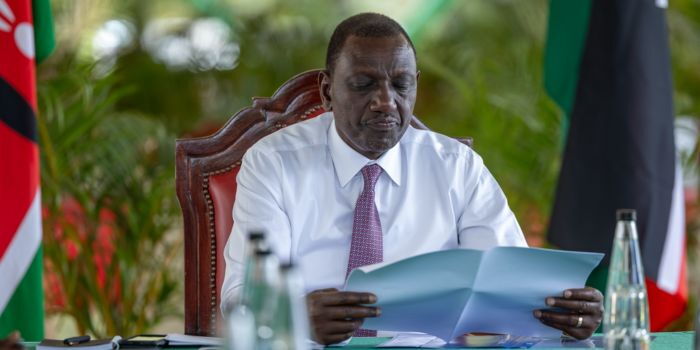President William Ruto has declined to sign the Pensions Amendment Bill into law, instead sending it back to Parliament for further review and changes. This proposed law aimed to introduce clear timelines for paying out pensions to public servants after they retire.
On Tuesday, National Assembly Speaker Moses Wetangula announced the development, stating that President Ruto raised concerns about two specific sections in the Bill that intended to change the current Pensions Act (Cap 189).
In his official communication, President Ruto explained that Clauses 2 and 3 of the Bill could lead to legal confusion and contradict existing pension laws, potentially causing problems in how pensions are managed.
Clause 2 of the Bill proposed giving the Cabinet Secretary for Finance the authority to create pension regulations. However, the President noted that this contradicts Section 3(2) of the existing Pensions Act, which gives that authority solely to the President.
“Giving the Cabinet Secretary this role creates a conflict with the current law, and this could cause issues when implementing the regulations,” part of President Ruto’s memorandum stated.
Clause 3 was also flagged for being unclear. It aimed to define exactly when a retiree becomes eligible to receive their pension. However, President Ruto argued that the clause is too vague and does not indicate whether pension payments should start from the retirement date or the date someone applies for their pension.
He cautioned that this lack of clarity could create confusion and delay the smooth handling of pension claims. “This ambiguity could weaken the legal clarity needed to process pension claims efficiently and on time,” the President warned.
In addition to pointing out flaws in the two clauses, President Ruto also highlighted that the Bill overlooks progress already made in improving pension processing. He said the government has recently introduced digital reforms that have significantly reduced delays in pension payments through automation and better systems.
“The Bill does not acknowledge the recent efforts to digitize pension services, which have already led to faster processing and better service to retirees,” he added.
With the President’s rejection, the memorandum has now been forwarded to the Departmental Committee on Finance and National Planning. This committee is tasked with reviewing the President’s feedback and is expected to deliver its report to Parliament within 21 days.
During this period, the committee will consult with relevant stakeholders, including government agencies and pension experts. Once the report is presented, members of the National Assembly will vote on whether to accept the President’s proposed changes or reject them.
If Parliament wants to override the President’s reservations, it will need a two-thirds majority vote.
The original Pensions Amendment Bill was passed by Parliament on August 7, 2022, and had been awaiting the President’s signature to become law.
Join Gen Z New WhatsApp Channel To Stay Updated On time https://whatsapp.com/channel/0029VaWT5gSGufImU8R0DO30


